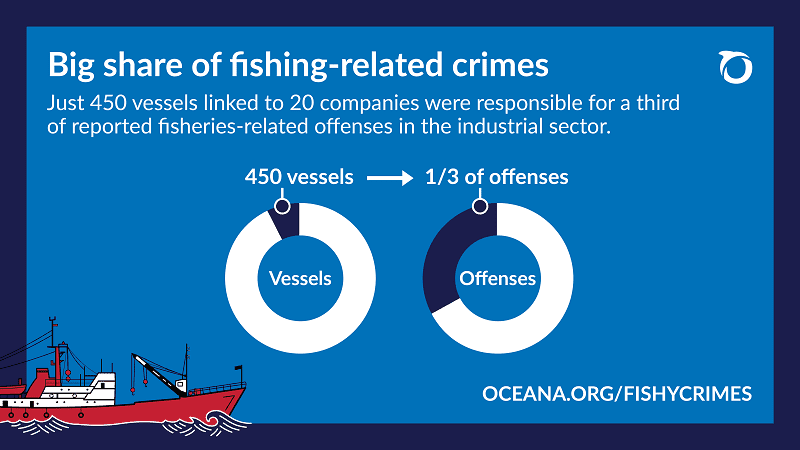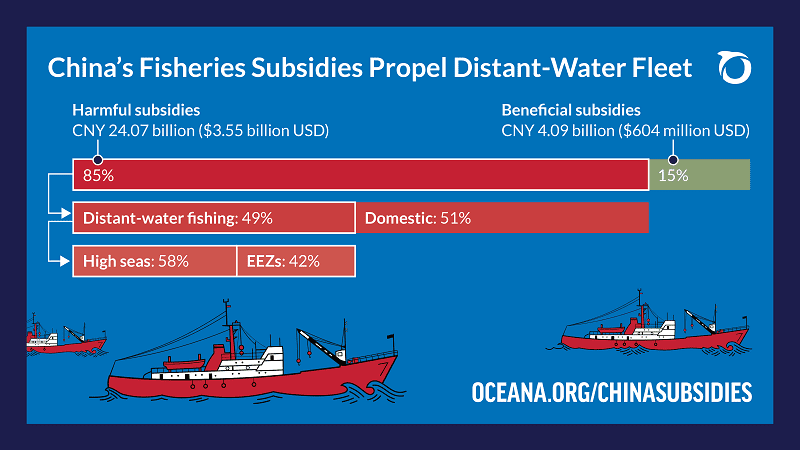Transparent Oceans Initiative
The Transparent Oceans Initiative (TOI) produces and disseminates evidence-based research that documents the activities — and the consequences — of the nations engaged in fishing on the high seas and the distant waters of other countries, so called distant-water fishing (DWF).
Oceana tells the real story of overfishing, food insecurity, human rights abuses, illegality, and ecosystem damage caused by poorly regulated industrial fleets roaming the world’s oceans. With research and advocacy partners around the world, TOI’s research and strategic outreach are designed to catalyze policy change, making governments and distant-water fishing businesses more transparent and accountable. TOI’s work tracks developing policy issues to ensure that our research is timely and useful, and able to seize the moment to advance reforms. TOI research and outreach emphasize:
- Collaborating with countries that are able and willing to influence distant-water fishing fleet behavior;
- Empowering and aiding those working to reform policies from within key distant-water fishing nations and in the countries most impacted by harmful distant-water fishing fleets; and
- Working with allies at international forums to hold distant-water fishing nations accountable for their fleets.
Ultimately, the Transparent Oceans Initiative aims to protect the ocean, improve the rule of law, and increase equity by taking away the social license of distant-water fishing fleets to operate with impunity.






